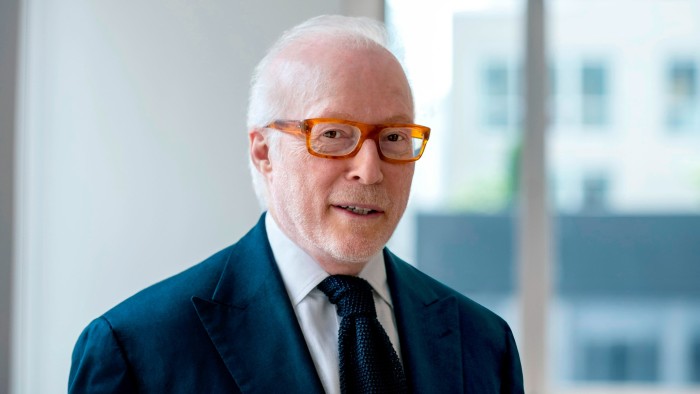Unlock the Editor’s Digest for free
Roula Khalaf, Editor of the FT, selects her favourite stories in this weekly newsletter.
Millennium Management, one of the world’s largest hedge funds, is in talks about selling a minority stake to external investors at a $14bn valuation, as it presses ahead with plans to open up its ownership for the first time.
People familiar with the discussions said that Millennium was working with Goldman Sachs’ Petershill Partners to identify potential buyers for a 10-15 per cent equity stake in Millennium’s management company. It is the first time a formal valuation has been put on the hedge fund.
Petershill, which is operated by Goldman, buys minority stakes in alternative investment firms and is targeting both its own clients and the largest investors in Millennium’s fund with the deal.
The deal would secure Millennium one of the top valuations of any hedge fund manager, according to two people familiar with the situation.
Millennium and Petershill declined to comment.
New York-based Millennium, which has more than $75bn in assets under management, is one of a select group of hedge fund giants that operates across asset classes.
The so-called multi-manager has more than 320 investment teams investing within a tight risk framework, and competes with the likes of Ken Griffin’s Citadel and Steve Cohen’s Point72.
The discussions with external investors come as Millennium is working on a plan to open up the ownership of the management company to its top executives for the first time by distributing equity to its key people.
Millennium is also talking to BlackRock about a strategic partnership that could lead to the world’s largest asset manager taking a small equity stake.
In recent years its septuagenarian founder Izzy Englander, who has kept sole ownership of Millennium for its 36-year history, has taken several steps to institutionalise the business and prepare it for life without him.
Millennium has secured its capital base by moving the vast majority of investors into a long-term share class, increasing the time it takes them to exit their investment with the hedge fund from one year to five.
Englander has also built out Millennium’s leadership team with a series of senior hires from Goldman Sachs, explored diversifying the business with new strategies, and changed its fee structure so that investors are now required to pay a minimum fee regardless of the fund’s performance.
Annual fees, on top of expenses, are now about 1 per cent of assets or 20 per cent of investment gains, something bankers described as akin to a management fee.
Hedge funds are typically valued on the basis of their management fees — around 1-2 per cent of overall assets — and the performance fees they generate. Management fees are seen as more predictable revenues and are ascribed a higher valuation by the market than sometimes volatile performance fees.
An adviser to private capital groups said that multi-manager hedge funds — even those such as Millennium with capital that has been locked up for a few years — typically receive a lower multiple on their management fees than the multiple for the management fees of private equity firms. They also usually have lower performance fees.
“If you put it all together it is a significantly lower multiple business than a well established private equity firm,” they said. “But investors could still be enamoured with the brand.”
The adviser said that “the publicly listed private equity firms trade for mid teens to low 20s multiple of cash flow. A hedge fund will be significantly less than that.”
Millennium’s flagship fund gained 15.1 per cent last year and is up about 0.4 per cent this year through May, investors said. It has recorded annualised gains of about 14 per cent since inception.
Additional reporting by Antoine Gara in New York

